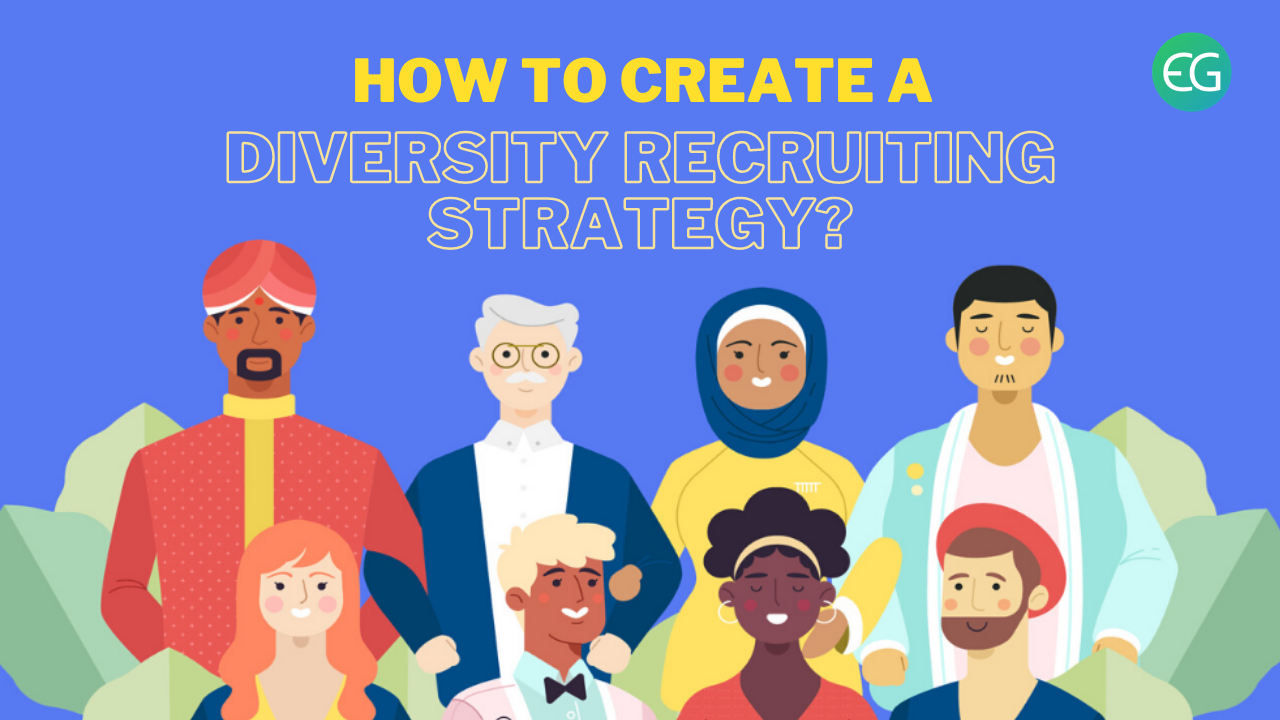
Most recruiters and managers would agree that a various team helps companies be more innovative, creative and achieve better results. You don’t even need to check out the stats (of which there are many) to understand intuitively that diversity recruiting contributes to raised overall performance.
It is sensible that having different perspectives and backgrounds on your team will contribute to newer and more diverse ideas to assist solve problems and drive innovation. It is not a surprise, then, that companies around the world are focusing on developing their diversity recruiting strategy.
But the subject of diversity goes beyond just business results and performance. Diversity may be a noble cause for any company to strive for. Building teams from qualified candidates no matter their gender, background, race, religion, or sexual orientation is long overdue, and a step towards true equality within the workplace.
What Is a Diversity Recruiting Strategy?
The definition of diversity hiring tells us that, “Diversity hiring is the hiring which is based on merit with special attention given to ensuring that the procedures are free from biases related to a candidate’s age, race, gender, religion, sexual orientation, and other personal characteristics that are unrelated to their job performance.”
A diversity recruiting strategy defines to all the goals, accountabilities, action items, and success measures that are undertaken for attracting, engaging, assessing, and recruiting diverse talent to drive business success. it’s often a part of a bigger diversity and inclusion strategy, developed to make sure a workforce reflects a company’s customer base and therefore the communities where it operates, and to maximize the advantages which will come from a various range of backgrounds, experiences, and perspectives.
Like any business, diversity recruiting strategies are also constantly changing and evolving, as leading-edge companies draw a connection between workforce diversity and job satisfaction, culture, community impact, innovation, and business results.
Diversity recruiting is that the practice of hiring candidates employing a process that’s free from biases for or against a person or group of candidates. it’s still merit-based recruitment and still aims to seek out the simplest possible candidate, but it’s structured to offer all applicants, no matter background, a civil right.
Diversity can fall under two categories: inherent diversity, like demographic factors, or acquired diversity, which are developed or earned over time. consider inherent diversity as being tied to race, gender, age, and the other characteristic that’s natural to who someone is as an individual. Acquired diversity refers to things like education, experience, values, skills, and knowledge, which are more fluid and may develop and evolve over time.
Define Your Diversity Recruiting Strategy Goals
As you’re getting started, record the highest three to 5 things your company would really like to accomplish with its diversity recruiting strategy. Put your goals in writing. for instance, your goals might look something like this:
- Increase diversity at every level of our organization to raised reflect our customer base and therefore the communities we serve.
- Drive and measure the impact diversity and inclusion has on business results.
- Recognize, maximize and reward behaviors that foster a various and inclusive culture.
As you’re setting company goals, here are a couple of things to consider:
Which areas of the business need the most attention when it comes to diversity?
According to a survey conducted by Diversity Recruiting Employer Benchmark Survey, it is told that as much as 70% of employers have specific goals for diversity hiring (i.e., increasing female representation in tech roles by 15%). That’s good because our employee survey showed diversity representation in management and leadership are the highest ways a corporation can illustrate a commitment to diversity.
Are your recruiting teams diverse themselves?
It has been seen that up to 63% of active job seekers show an indication that they would be reluctant to accept a job offer if they did not happen to meet a diverse range of current employees during the interview process.
Is your targetted candidate pool diverse?
Building a various workforce can mean various things for various teams. If you’re hiring for a marketing role, believe which perspectives, backgrounds, and experiences are lacking from the marketing team specifically, and build a candidate pool that reflects those needs.
Can your company do a far better job communicating its commitment to diversity?
Based on survey results, most job seekers believe companies that say they’re committed to diversity. In fact, most of the existing employees indicate that if their organization states a commitment to diversity and inclusion in company communications is one of the highest three things employers can do to drive recruiting diversity.
When was the last time you checked your employer branding? have you ever evaluated whether it accurately reflects how diversity and inclusion play into your employee value proposition?
This content was brought to you by Evalground Online Testing Platform. Evalground is an online assessment and test evaluation system focused on helping Recruiters in initial screening of potential candidates from an ocean of job seekers in an automated way.Evalground supports Online Aptitude Tests, Spoken English Communication Skills Assessments, Coding Contests in JAVA, C, C++, Ruby, Python, JavaScript and PHP. Evalground also supports Automated asynchronous interviews. Evalground Screening Tests can be used by Recruiters during campus hiring or to screen walkin candidates.
